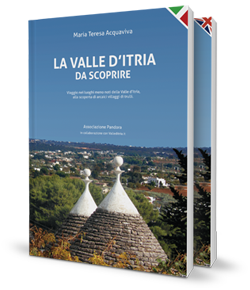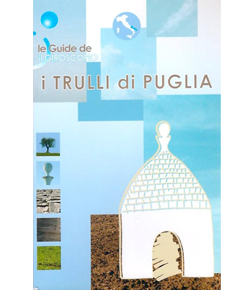Text translated by Google Translate.
The name of the tradition La pasca tli polomme is in reference to the typical sweets of this occasion, the palomme, shortbread cakes in the shape of a dove with boiled egg inside.
The tradition came from all the neighboring towns of Grottaglie, from Martina Franca, from Villa Castelli, from Montemesola. It came with horse-drawn carts, mules, donkeys; there are those who reached the sanctuary on foot as a pilgrim to ask for the grace of the Madonna della Mutata. These and others are the memories of many elderly people who until a few decades ago moved with the family to go to the Pasca tli palomme tradition (Easter of the pigeons), also Pascaredda tli vurtagghise (inhabitants of Grottaglie), a sort of Easter Monday for the inhabitants of Grottaglie that took place, and takes place, in the beautiful church entrusted to the Minimum Fathers of Grottaglie, the Madonna della Mutata, elevated to the Marian Shrine of the city with a decree of the Archbishop Monsignor Ferdinando Bernardi of 1 April 1954.
The Feast was and always is on Domenica in albis, that is, the Sunday after Christian Easter. In Grottaglie the Madonna della Mutata is a co-patron of the city, the other patrons are San Francesco De Geronimo and San Ciro. The Pasca tli palomme every year is marked by various events. The Pro Loco of Grottaglie organizes pilgrimages and guided visits to the sanctuary, bicycle tours are organized from Grottaglie to the Sanctuary and also thematic meetings to deepen the tradition and the church. As per tradition, there are stalls on site, typical local bakery products, palomme, and good wine. An event suitable for people of all ages, aimed at revaluing the past. In the afternoon, singers of folk music with musicians also come every year. With them a patrol is formed, that is a circle of mandolin players, accordion, guitars and many tambourines, which sings songs in honor of the Madonna. The patrol is filled with pizzica pizzica and other folk dances, for this reason some artisans also come who manufacture tambourines and somber gloomy.
The name of the party, La pasca tli polomme, is in reference to the typical sweets of this occasion, the palomme. These are dove-shaped shortbread desserts with boiled egg inside. There are also two other desserts that are being prepared, the puddichi cu l'oi and the scarcedde. The first are taralli of pappery bread with the hard-boiled egg stuck inside; the scarcedde (from medieval Latin scarsella, bag) are shaped like bags of pappery bread with boiled egg. The egg is a symbol of rebirth and this suggests that the party may derive from pagan rituals dedicated to spring rebirth. The boiled egg in particular also refers to the tables laid on the evening of the Jewish Passover, which is consumed together with other foods. The hard-boiled egg for Judaism is the first food offered to those in mourning because it is a symbol of life that is about to be born, therefore it is opposed to death, the Easter theme. In fact, since the egg does not have corners, it has neither a beginning nor an end, therefore it symbolizes the cyclical nature of life. One dies and is reborn continuously.
This Jewish cultural influence may have been rooted locally by the community of Jews who, in the tenth century who escaped the fire and massacre of Oria, a nearby town, settled in the territory of Grottaglie in the Gravina del Fullonese, a toponym that derives from fullone, leather tanner, which was the community activity.













